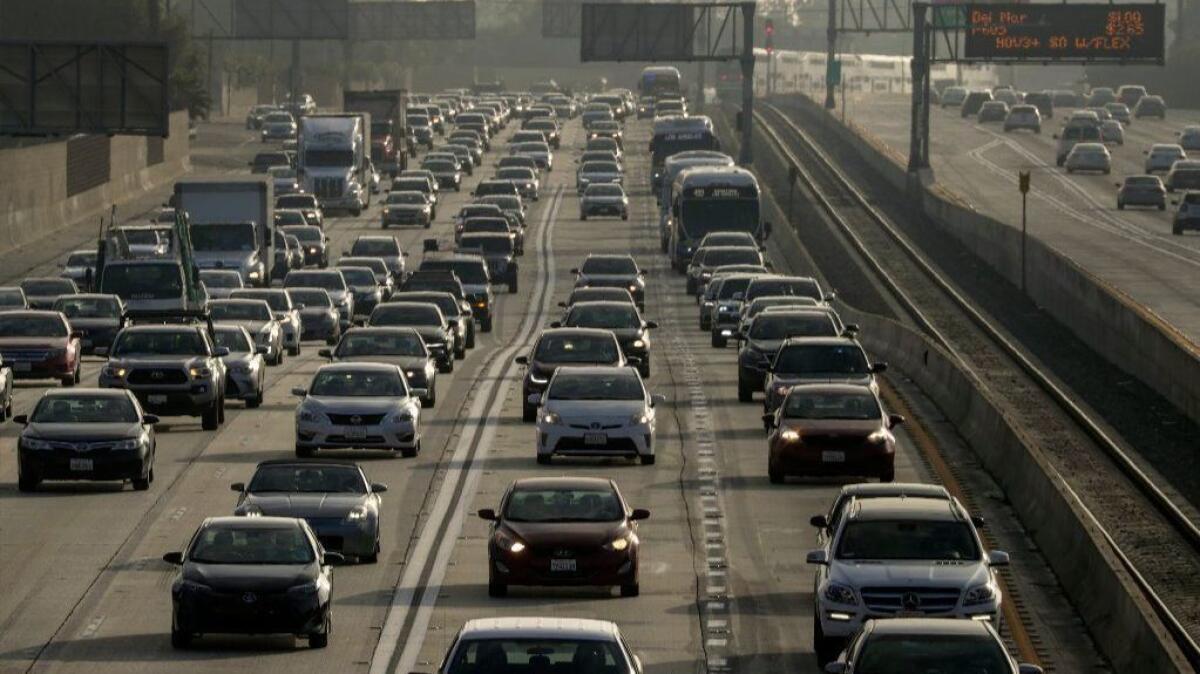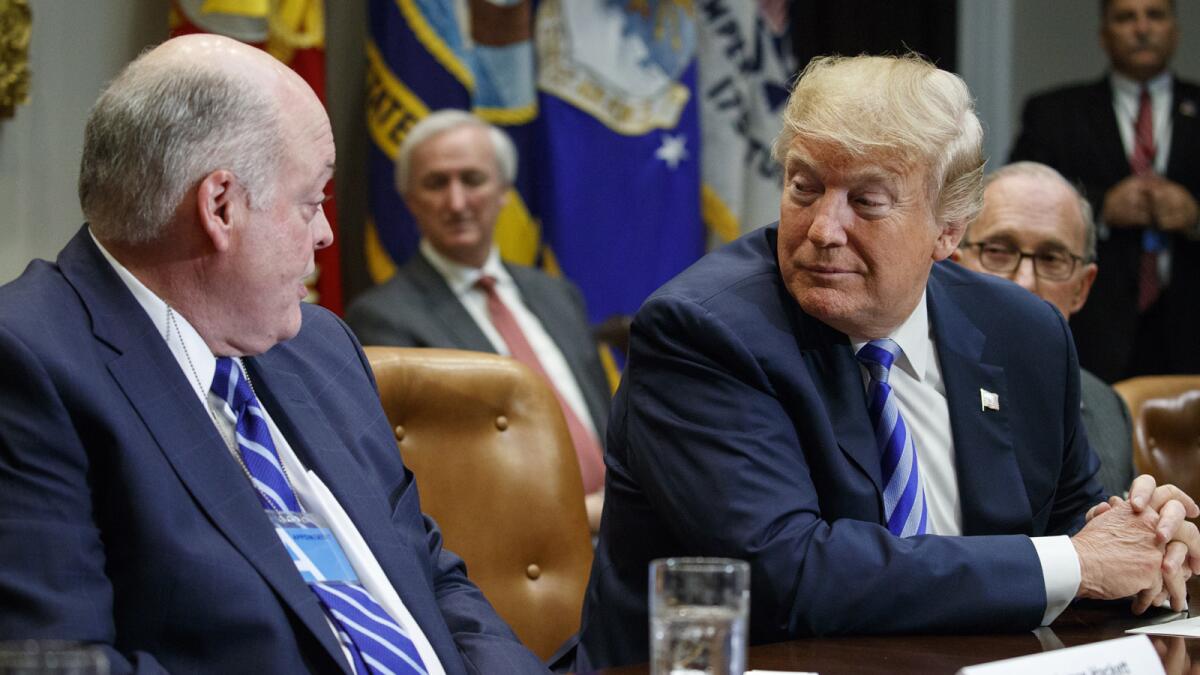Must Reads: Auto executives got more than they bargained for in lobbying Trump to ease fuel standard

Reporting from Washington — The world’s auto companies are fast learning how risky it can be to seek a favor from President Trump.
They asked the president to nudge California and the rest of the country toward looser fuel economy rules. What they got instead was a veritable declaration of war against the state, threatening to destabilize the industry, tarnish its public image and leave the companies tangled in years of litigation.
On Friday, the top executives of the companies trekked to the White House in an effort to wrest back some control of the policy initiative they set in motion. It had been hijacked by the anti-regulatory crusaders within the administration pushing for a rollback far more aggressive than the automakers ever planned.
The car companies politely suggested to the president that an assault on California’s long-standing authority to set its own emissions rules is actually not something that helps them.
The executives left their meeting with Trump feeling a little less unsettled than when they entered. The president, according to several people briefed on the discussion, heard them out and directed his agencies to hold their fire. Negotiate with California, Trump is said to have told Secretary of Transportation Elaine Chao and Scott Pruitt, the head of the Environmental Protection Agency.
For the uninitiated, it seemed a cease-fire had been reached. But Trump has uttered similarly soothing words in other summits with executives, only to back away from them later. What happens next is anybody’s guess.

The car companies “opened up a Pandora’s box when they asked for these fuel economy standards to be loosened around the edges,” said Ann Carlson, an environmental law professor at UCLA. “What they did instead is unleash this anti-regulatory monster, and a process that has been driven entirely by antipathy toward regulations.”
California leaders are reacting cautiously to news that Washington now wants to negotiate in earnest. They have been rattled by the administration’s plan to revoke California’s long-standing authority to enforce its own, tougher rules on tailpipe emissions. A draft blueprint would force California and every other state to abandon the goal of getting cars and SUVs to average 55 miles per gallon by 2025. Instead, the targets would stall out at under 42 miles per gallon in 2020, and stay there through 2026.
State officials have already sued to stop the administration. The rollback Washington envisions would cripple California’s ability to meet its air quality and climate-action goals.
It is not just California bristling at the aggressive posture: 17 other states have joined its lawsuit, most of them part of a coalition that embraces California’s emissions standards, as federal law allows.
The auto firms are well aware that if the administration forges ahead with freezing the targets — and trying to force California to go along — the result will likely be years of litigation between the states and the federal government, and prolonged uncertainty for the firms.
The outcome could be a national standard that is radically different from the one followed by California and the states allied with it, which account for 37% of all vehicles sold. The firms are eager to keep the targets uniform nationwide, as they want to be able to sell the same cars in all 50 states.
The Auto Alliance and Global Automakers, the leading auto industry groups, said in a statement after the White House meeting that they expect the administration to issue “a range of proposals for future fuel economy and greenhouse gas regulations” for consideration by industry, the states, environmentalists and others. They also signaled that the administration would be engaging in a “discussion with California on an expedited basis.”
In congressional testimony this week, the head of the alliance told lawmakers that the group did not support freezing mileage targets at their 2020 levels. But the group has been unclear about exactly what the automakers are seeking, and whether it is a major rewrite to the program or the kind of modest tweaks that California would consider.
California leaders were not invited to the White House meeting. Nor were lawmakers from the dozen other states that embrace California’s emissions rules. But they are paying close attention to what comes out of it.
Several congressional Democrats from California fired off a letter to automakers on Friday, demanding they clarify the extent to which they are aligned with the Trump administration in its rollback plans. The lawmakers are joining large environmental organizations in their campaign to ratchet up public pressure on the firms, which have sought to position themselves in the marketplace as ecologically oriented and invested in curbing climate change. The relief they have sought from an administration packed with appointees who question the mainstream scientific consensus on global warming has created some awkward public relations.
“It is our hope,” the letter from the lawmakers said, “if you are advocating for a drastic rollback of existing policy, you will be honest with the American public about your intentions as well as the future financial and public health risks that such advocacy entails.”
There is also pressure coming from the other direction. Some free market activists influential in the administration are urging Trump to ignore the advice of the automakers and forge ahead with a freeze in the mileage targets.
“We encourage you to stay the course,” said a letter signed by three advisors who held key environmental posts in Trump’s transition to the presidency. “Your efforts to reform this mandate are about cost, consumer choice, and whether or not your administration or the state of California gets to set national policy.”
More stories from Evan Halper »
Follow me: @evanhalper
UPDATES:
3:25 p.m.: This story was updated after the meeting.
This story was originally published at 3:50 a.m.
More to Read
Sign up for Essential California
The most important California stories and recommendations in your inbox every morning.
You may occasionally receive promotional content from the Los Angeles Times.












